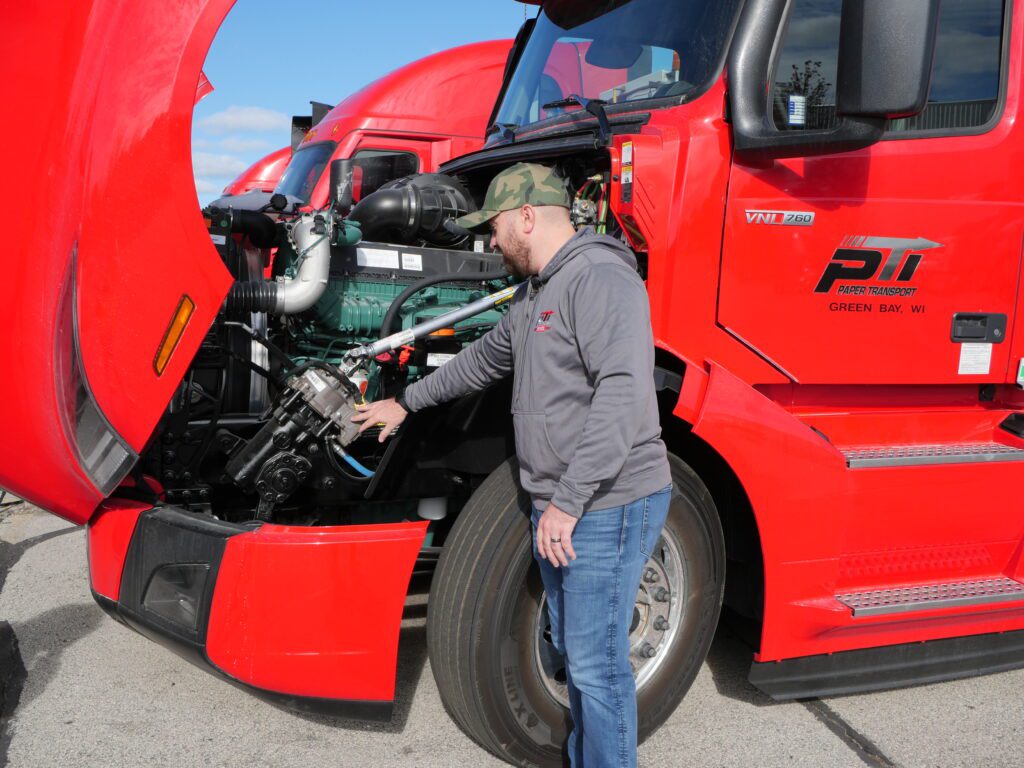How do you decide between running your operations with a private fleet or a dedicated fleet? Below are 4 myths about managing private fleets.
1) Capacity Is Guaranteed for Private Fleets

While it might appear that operating your own fleet ensures you always have the flexibility to move freight at your convenience, the reality is that private fleets may have limited flexibility and can’t easily adapt to changing business demands. An example of this is the time and ability to hire and bring new drivers in for changes in demand or for business growth.
A dedicated fleet, in contrast to a private fleet, offers a solution to the capacity and flexibility issues. With a dedicated carrier, businesses can benefit from a reliable and adaptable transportation solution that adjusts to their changing needs. This flexibility ensures that they have access to the right amount of capacity when they need it, allowing a shipper to focus on their core operations while enjoying seamless and responsive transportation services.
2) Private Fleets Cover Costs

Private fleets, while offering complete control over a company’s operations, introduce a lot of additional expenses that are challenging to predict and manage. These expenses encompass various aspects, including the costs associated with maintaining and operating the fleet’s vehicles, driver management, and adhering to the complexities of regulatory compliance in addition to the major liability risks involved in operating.
These unanticipated financial burdens can, unfortunately, have a significant impact on a company’s finances, making it vital for shippers to carefully consider and evaluate the pros and cons of managing a private fleet.
Dedicated carriers specialize in providing transportation services, which means they can achieve economies of scale and operational efficiencies that are challenging for individual private fleets to replicate. Dedicated carriers typically spread their costs across multiple clients, reducing the overall cost burden on each shipper.
3) Private Fleet Staff Provides Better Services Than a For-Hire Carrier

Transportation encompasses various roles, including driving, management, and planning, and private fleets are well-equipped to excel in these diverse areas. However, dedicated carriers have multiple teams that assist smooth operations, such as the management of equipment, recruiting, and safety.
More so, a dedicated fleet can tailor solutions to a shipper’s needs based off of the flexible offerings and manpower available. Dedicated carriers can craft tailored solutions by leveraging diverse and adaptable offerings. This flexibility empowers dedicated carriers to align closely and efficiently with a shipper’s evolving requirements. This personalized approach allows shippers to focus on their core business.
4) Technology with a Private Fleet Is More Advanced

Dedicated carriers invest in and maintain a diverse fleet of vehicles, ensuring that shippers don’t need to allocate capital for purchasing, maintaining, and replacing trucks, which can be a substantial and unpredictable financial commitment for private fleet owners.
Dedicated carriers understand the importance of having a reliable vehicle that gets a shipper’s needs from point A to point B as safely and effectively as possible. Many dedicated fleets run trucks with an average less than 3 years, meaning fewer repairs and better reliability.
Weigh the pros and cons carefully when determining what kind of fleet is best for your shipping needs. Learn more about Paper Transport’s transportation solutions by clicking the image below.


